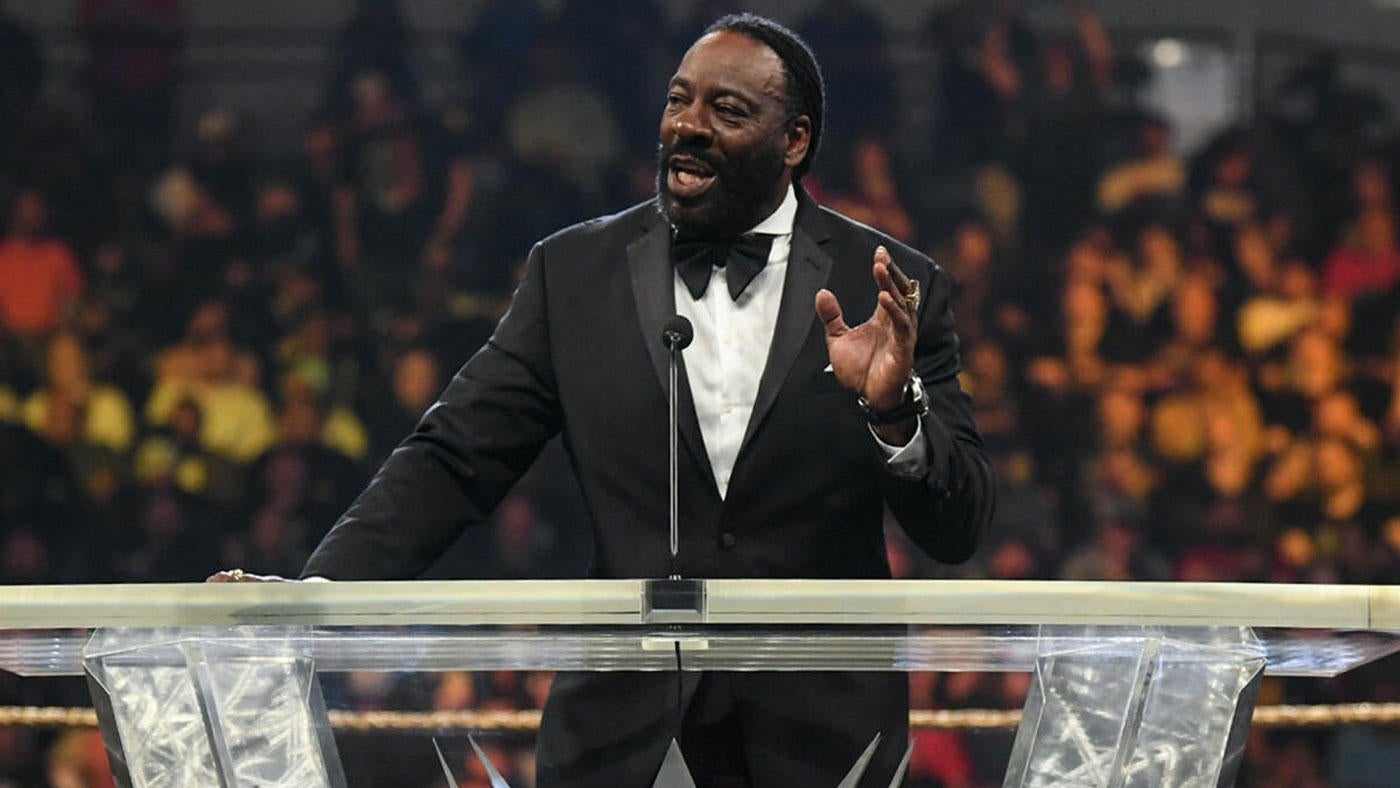Booker T on comparing WWE’s current superstars to the Attitude Era: ‘We need to move past it sooner or later’
Written by Lucky Wilson | KJMM.COM on May 7, 2024

WWE is on a hot streak right now. The company is breaking financial records on a regular basis, producing a plethora of main event stars and booking critically acclaimed matches and stories. For the first time in a long time, fans seem more interested in celebrating WWE’s current product than waxing poetic about the Attitude Era.
“I’ve heard it coined as the Renaissance Era, and I really like that outlook on it,” undisputed WWE champion Cody Rhodes previously told Fox News Digital. “For me, as a wrestler, I’m most excited that we no longer have to stand in the shadow of the Attitude Era because of the last two years we’ve done better business than they ever did — and they did exceptional, unbelievable, amazing business. I’m only making comparisons on a black-and-white level, dollars and cents, in terms of what WWE’s been able to do over the last two years.”
Waning enthusiasm for WWE storytelling often had fans reminiscing on better days. The Attitude Era was a shift in the WWE ethos that saved the company from declining ratings amid fierce competition from WCW. From November 1997 to May 2002, WWE shifted to a more adult-oriented product. Outlandish storylines, foul language and violent matches took precedence during this stretch. Loosening creative shackles allowed legendary personalities like “Stone Cold” Steve Austin, The Rock and D-Generation X to break out.
“The Attitude Era is something we’re always going to talk about,” Booker T told CBS Sports while discussing hosting “WWE’s Most Wanted Treasures” on A&E. “It’s always going to be something that was a part of your life and my life in some way, shape or form.”
Booker wrestled for WCW during most of the Attitude Era, becoming a five-time WCW world heavyweight champion. He joined WWE in the final year of the Attitude Era after the enduring promotion bought out its competitor. Booker found much success in WWE and is still actively involved with the company, primarily as a color commentator on the NXT developmental brand. Booker isn’t sure if the “Renaissance Era” Rhodes champions has met or exceeded the heights of the Attitude Era, but he loves the spirit of the debate.
“I understand what guys like Cody are talking about. This is their era. Is it better than the Attitude Era? Well, they should want to make it better than the Attitude Era,” Booker said. “Just think about ‘Rivals’ or ‘Treasures,’ we can’t talk about the Attitude Era forever. We need to move past it sooner or later. We’re going to have to start talking about this next generation. The Roman Reigns’ and Cody Rhodes’ of the world and their legacies and their ‘Attitude Era’ that they created. So I understand it. I get it and if I was in their shoes, I would feel the exact same way.”
A lot of content from the Attitude Era hasn’t aged well: an elderly woman giving birth to a hand, a SWAT officer driving off with his rival’s deceased father in a casket and an adult film star nearly having his working tools chopped off with a katana come to mind. Arguing the success of an era depends on the evaluation criteria. The television ratings of the Attitude Era will never be rivaled, but that’s an increasingly outdated point as WWE Raw soon moves to Netflix. WWE regularly touts record-breaking gates but inflation plays a role. Two promising factors for the Renaissance Era are WWE’s recent 18 consecutive TV sellouts and its success in taking pay-per-views to international markets.
Paul Levesque, known more commonly as Triple H, is often credited for rejuvenating interest in WWE. His many responsibilities as chief content officer include overseeing creative. There were noticeable changes to WWE’s television product — from long-term storytelling and match quality to production elements — once Levesque took the reigns from disgraced former boss Vince McMahon.
“I think it’s all evolution as far as the business goes,” Booker said. “With Hunter [Levesque] in there, he sees the business more like the young people see it. He may understand what young people like a little more these days. Pop culture has a whole lot to do with it.”
Check out the full interview with Booker T below.
Quality professional wrestling is a very subjective matter. Nostalgia is powerful and most reminisce fondest of whatever era first captured their imagination. For Booker, that moment came well before the Attitude Era. Booker hosts the ongoing season of “WWE’s Most Wanted Treasures” with fellow Attitude Era stars Mick Foley and Lita, airing Sundays on A&E. During his expeditions, Booker came across a piece of memorabilia that instantly transported him.
“It took me back to my childhood at the Sam Houston Coliseum and that was Junkyard Dog’s dog collar,” Booker said. “I’d watch Junkyard Dog in Houston and Louisana. He was the icon. He was the most famous star in the Texas-Louisana region. Those white boots and white trunks with that dog collar on. JYD going out there and representing for the brothers gave me a chill, a feeling, a tear.”
The post Booker T on comparing WWE’s current superstars to the Attitude Era: ‘We need to move past it sooner or later’ first appeared on CBS Sports.
 KVSP
KVSP 




